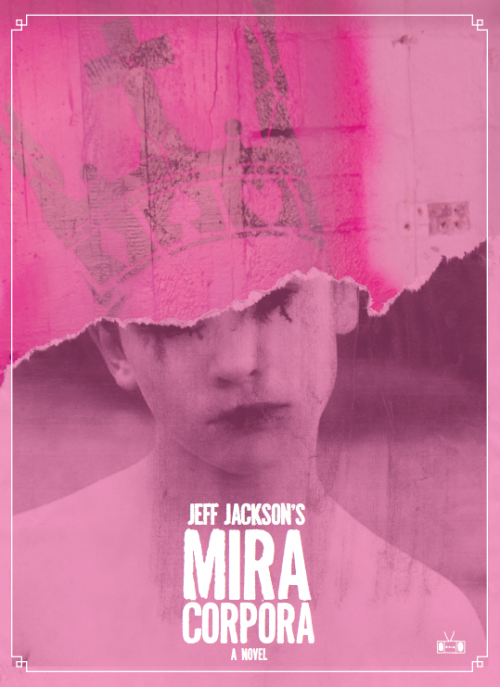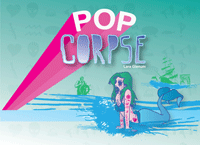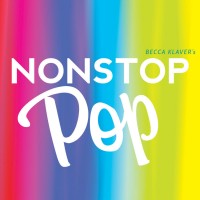THIS IS THE EK-STATIC CITY: THOUGHTS ON KIM HYESOON’S POETRYAND POETICS
***
In “Poetry of Hearing,” Kim Hyesoon has this to say regarding the spirit: “Does it stay “outside” and take over someone (a woman in particular) ….. Or is the spirit something that gushes out from someone’s insides— someone who is ill and in severe pain, ….. like a virus, like love, or something that is called a ghost because it is nameless?” (Princess Abandoned)
Hyesoon’s poetry and poetics have mainly been discussed in terms of the grotesque, but they also hover around questions regarding the experience and performance of spirit. I see the ek-static as the experience of spirit, and ek-stasis to be its performance. Ekstasis seems to be a necessary bridge between Kim Hyesoon’s atavistic discussion of spirit in her poetics and the violence it informs, experiences, and envisions in her poetry, in that the symbolic and its identification with the grotesque is also the ekstatic or, in Norman O. Brown’s sense, the telepathic, a merging of bodies, or, the spirit’s experience.
READ MORE >
September 18th, 2013 / 11:24 am
First Study for a Long Walk: Castle to Castle
Lynn Xu and I are married, and we’re also poets. For the past year we’ve lived in an interdisciplinary residency in Germany, in a community of artists and all sorts of people we don’t usually get to hang out with: architects, new music composers, choreographers, filmmakers, even a chess Grand Master and a video game sociologist. Soon we will return to the States and to the small vacant lot in West Texas that we call our home. In order to continue conversations we’re having, and to drag art further into our life together, we’ve come up with a project called Architecture for Travelers. At its center is a collaboration with our friend Alan Worn, with whom we’re designing a house and a cottage where we can host residencies for creative people. There will also be poetry, photography, and a long journey involved. We’re not crowd-funding, but we are taking pre-orders for limited-edition photographs and books to help out with expenses. ( For more detailed info, visit our website.)
Beginning in November, I’ll spend a month or so walking 700 miles from my birthplace on Galveston Island to our property on Galveston Street in Marfa, sometimes accompanied by family and friends. Today Lynn and I went on a practice walk, and for the first time incorporated another aspect of the planned trip across Texas: taking photographs each hour on the hour (5 today, about 240 in Texas). We set out from our studio at the Akademie Schloss Solitude and four hours later arrived at Schloss Ludwigsburg. This is the second time I’ve traveled between these two castles on foot, the first was this past winter with friend, collaborator, and artist Charlotte Moth. Robert Walser wrote “A walk is always filled with significant phenomena, which are valuable to see and feel,” and both trips from Schloss to Schloss have lived up to this proclamation. During the first some of our ideas were dreamed up, and this time some details became clearer. Here are the five photographs from today’s walk, along with written sketches about our time on the road.
***
1.

We left at eleven this morning. Heading down the big hill Schloss Solitude sits atop, we could see the straight-as-an-arrow path we’d be following stretched out for six or seven miles, after which it disappears over a wooded hill. I turned around and photographed our starting point. It made me think of Wallace Stevens’s “Anecdote of the Jar”: “It made the slovenly wilderness / Surround that hill.” Despite a forecast of showers, the weather was perfect and the skies were blue and clear all day long.
2.

At the one-hour mark we were crossing through the outskirts of Stuttgart. There was some interesting architecture to be seen, but as the clock tolled the best thing around was a tree that Lynn spotted in a front yard behind a white picket fence. It was terrifying. It looked both totally out of place and too perfect for the suburban landscape. As we walked on, we talked about the best way to display the 240 photographs that we’ll have at the end of the Texas journey.
We Got Sick of Theory and Talked About That

Between July 9th and August 5th , Alec Niedenthal and I had a long & blabby conversation that began when Alec enthusiastically responded to me saying “I’m almost completely gagged now by fucks like Deleuze.” Knowing Alec mostly as a fellow young philosophy & theory head, I asked after his newfound disillusionment with the stuff.
That conversation posted here—mostly unedited—in hopes you find it useful or rousing.
Ken: What literature strikes you as bullshit now?
Alec: Your question is great, but I’m not sure that I’m equipped to answer it. I’ll explain why. First, I’m not sure how possible it is today to talk about what sort of art is valueless, ie bullshit, when the role of art is so unclear and, less evidently but no less significantly, when we as avant-garde writers are unsure whether there should be an institution called “Art” any longer. That’s to say, it’s hard to even talk about what literature should be doing when the “should”-level claim about literature in general—basically, what it ought to depict and how to depict it—is supposed to be. READ MORE >
Birdwatching with Jonathan Franzen

I was between meetings with my editor and agent, walking down E 12th St. about to enter a cafe for an almond croissant, when I spotted a Columba livia (of the Columbiformes order, colloquially known by pedestrians as a “pigeon”) standing on the sidewalk gazing into the havoc of industry brought upon by humans, the good earth embalmed under slabs of concrete and funk. I always carry my binoculars, a moleskin, and one sharpened No. 2 pencil in my satchel. Did people stare at me as I stared at this fine specimen of urban worry? I could not tell. Peripheral vision, like 20/20, is overrated. Under the lens of my binoculars, past those of my unwittingly hipster glasses, through my cornea into the timeless cave painting of light on my retina, along my optic nerve like some whip of meaning, and into this very large head, I witnessed a stillness—enough to make one dry weep—unknown to our younger generation currently glued to various vapid interfaces with apps on their supposedly “smart” phones. From the ashes of Goethe and Heine, the timelessness of vision’s sad lament of nature could be felt in my bones, and jeans. I needed new pants. This diet was going nowhere.
okay, so, Franzen’s been toasted again:
“Every woman must decide how not to sleep with Jonathan Franzen . . . how best to escape his sexual clutches if (she) ever encountered him on the path that led to the nearest market town” —
(from The Toast)
“for he shall be riding on a white steed, and his right hand will bear no glove. When you see him, you must rush at him, and throw your kirtle over him, and hold fast to him –”
(from The Toast)
But is it funny? In poor taste?
click here to read the “Toast” in full
The Original Narrator No Longer Exists: An Interview with Jeff Jackson

Jeff Jackson is the author of the novel Mira Corpora, just released from Two Dollar Radio. He holds an MFA from NYU and is the recipient of fellowships from the MacDowell Colony and Baryshnikov Center. His short fiction has been featured in Guernica, The Collagist, the anthology Userlands, and performed by New River Dramatists in New York and Los Angeles. Five of his plays have been produced by the Obie Award-winning Collapsable Giraffe company, including Botanica which was selected by New York Times as “one of the most galvanizing theater experiences of 2012.” Of Mira Corpora, Don DeLillo says this: “I hope the book finds the serious readers who are out there waiting for this kind of fiction to hit them in the face.” And Dennis Cooper says this: “Jeff Jackson is one of the most extraordinarily gifted young writers I’ve read in a very long time. His strangely serene yet gripping, unsettling, and beautifully rendered novel Mira Corpora has within it all the earmarks of an important new literary voice.”
Michael Kimball: I’m curious about the way the title and author are presented on the cover. It’s not “Mira Corpora” and then “Jeff Jackson” as it is on the spine. On the cover, it’s “Jeff Jackson’s Mira Corpora.” It’s something I’ve only seen with movie titles, I think, and I’m wondering how you decided on that particular presentation.
Jeff Jackson: Two Dollar Radio was apparently inspired by movie posters when they came up with that presentation. There wasn’t any conscious strategy behind it other than to create something that stood out. I can see how it invites a deeper reading, though. Early readers have said the book’s prose has a cinematic quality (and I’m a huge cinephile) and putting my name before the title seems to reference that the narrator shares my name.
Girl is Totes Sketch

 Pop Corpse
Pop Corpse
by Lara Glenum
Action Books, May 2013
186 pages / $12-16 Buy from Action Books or SPD
&
Nonstop Pop
by Becca Klaver
Bloof Books, April 2013
36 pages / $8 Buy from Bloof Books
There is certainly a widespread fascination with Pop in women’s writing and performance today. From the Warholian Pop Vanessa Place Inc., to Lady’s Gaga ARTPOP album, women’s culture has embraced the “lowbrow” of POPular culture, it’s would-be nemesis. Lara Glenum’s Pop Corpse and Becca Klaver’s Nonstop Pop, are two such examples. In an endless purposeful regression towards their inner fucked up girly girl, Klaver and Glenum explore not only in the language of pop but also in the relationship between the paranoid nature of pop and the always already dead and doubted girl.
Glenum’s Pop Corpse takes place in a post-apocalyptic ecological wasteland—literally, an unda-tha-sea Little Mermaid remix that takes place in a world devoid of terra firma, an archipelago of “floating islands of plastic garbage.” The book follows an asexual mermaid named XXX on her quest to give herself a vagina by any means (cleverly troping on the desexed Little Mermaid, who perhaps didn’t only wish for legs)—whether this means self-cutting, visiting the Sea Witch, or killing The Smear, the philosophizing love interest. XXX is publicly shamed for self-mutilation, and quarantined in a “RE-EDUCATION CAMP 4 THE SEXUALLY DEVIANT,” where she films her own self-mutilation, presumable broadcasting it on the underwater internet. Written in dramatic form, and utilizing pop-slang and e-slang, here, pop is a language, a way of thinking, but it also predicates pain and suffering for the mermaids. In many ways, Glenum’s scoring of feminine affect reads like a transcription of a hyper-girly Ryan Trecartin film. The mermaids talk like they’re texting: “Ever since the ocean’s gone toxic and the earth’s been burnt to a crisp, she’s been totes sketch.” And the male characters have absorbed the ironic, sexist adolescent boy humor that dominates American capitalist entertainment discourse: “Try kissing one sometime. It’s like giving a rim job to a dysentery victim. With really long ass hair.” Yet, the language remains manic, and at times is theoretically lucid. For instance, an Undersea Denizen observes that the King and Queen of the Sea are “openly oppressing us by persistently courting/curtailing our lines of sight with the spectacle of their Vision Machines […] a culturally-produced spectacle that naturalizes highly specific forms of desire and consumption.”
It is these acute observations about the spectacle of commodity that Becca Klaver’s Nonstop Pop performs. In this way, Nonstop Pop always predicts loss, even when it does not explicitly perform it. In a neoconfesional meets Flarf vein, the poems are a mix of lineated reflections and prose meditations that struggle with the ridiculous demands of consumerism—“less treadmill, more Skechers Shape-Ups” and “I was like so … Geico/ And you were like so… Activia”—as well as a troubled attachment to a more adolescent, indeed girlish, relation with capitalist commodity—from “Schwarzeneneggery”: “She knows she’s not supposed to love it but knows that’s why she does […] she presumes to be a muscleman.”
September 16th, 2013 / 11:05 am
Ghost Tantras by Michael McClure
 Ghost Tantras
Ghost Tantras
by Michael McClure
City Lights, Forthcoming November 2013
106 pages / $13.95 Preorder from Amazon or City Lights
Michael McClure’s classic Ghost Tantras (long out of print but soon to be re-released by City Lights) was self-published in 1964 and in 2013 it continues to be just as strange, earnest, ridiculous, and fascinating a work. Somehow, Ghost Tantras reads today both as fresh and faded. There’s something about McClure’s “beast language,” intended to put readers in touch with their primordial, animal selves, that sounds simultaneously urgent and dated. McClure’s poetic passion and undeniable force is immediate and magnetic. Thematically, however, McClure’s “beast language” appears unaware of its own contradictions. Whether or not you agree with McClure’s linguistic philosophy, you simply cannot ignore a poem like “Tantra 32:”
dorr kann bee blayke leet eer noo tow thownie
dann brekk thay mah torr blurt noh breshk bakk
mag me toww noh oww thoonie meeee blest !
KHRAHRR ! SHELF ! TEEMOWW !
eem now oodorr sen bless I thee ooh-nohh
carnal air of wax portrayed in smoke.
THEE OWW OHH MY
sung & sad fabled sleeping self
grahoored to waking gowwr.
These poems are intense, serious, hilarious, beautiful. The “beast language” is intended to appeal to the animal inside every human (animals can’t read, unfortunately, even in beast language, which is perhaps why McClure famously read his poems aloud to lions at the San Francisco Zoo. For McClure, language is something entirely different than simple words and syntax. He pushes language to many limits, most of them definitive. Words here become sounds, writing becomes speech; what is so foundationally cultural—language—is imagined and acted upon as natural. If nothing else, this makes for some bravely original and compelling poetry, and McClure is widely recognized today as a revolutionary poet because of his atypical attitudes toward language.
There is a beautiful energy around Ghost Tantras, and around McClure’s mystique, but looking at the 1960s from our vantage point, it’s hard to believe McClure actually thought these poems would “change the shape of the universe.” It is perhaps a testament to the importance of poetry (and cultural life in general) in America in the 1960s that anyone would believe such a thing. Maybe we need some of that confidence today. Hesitancy, academization, and critical thinking have certainly brought poetry, and the universe, nowhere fast. McClure and his generation are undoubtedly courageous writers, even if they appear to us as naïve. Naïvete may be a necessary foundational element for work as bold as this. McClure’s attempts to construct a natural language fail because he uses the English alphabet to construct that language (not to mention that beast language sounds conspicuously like Old English). The natural, or a direct biological reality, cannot be divorced from our intellectual understanding of that reality. McClure is attempting to construct something pure and natural from the cultural debris he happens to pick up. Unfortunately, he doesn’t interrogate his choices of debris. Nevertheless, the philosophical shortcomings of Ghost Tantras are central to its success. In her book Stupidity, Avital Ronell writes,
The severest of poets ventured, as if prompted by some transcendental obligation, into a consecrated domain where language meets its unmasking in stupidity, idiocy, imbecility, and other cognates of nonknowing. [. . .] Poetic language remains sheer promise and, in the way shown by Hölderlin, capable of hearing the alien unsaid.
McClure is the severest of poets, an American Hölderlin, and Ghost Tantras shows us the unexpectedly beautiful things that poetry can do when it is pressed against and beyond its rational limits. Beast language is a cognate of nonknowing, though it remains sheer promise. Ultimately, Ghost Tantras stands as a historical marker of the radical courage and passion of McClure and his generation, and it is perhaps time for that message to be heard, without understanding, once again.
***
Housten Donham is a poet and critic. He lives in the SF Bay Area. He sometimes updates his tumblr (elkrunningfromwolves.tumblr.com).
September 16th, 2013 / 11:00 am
 You might have read about the golden age of online book clubs, but have you heard that those genius kids at APRIL in Seattle are starting their own book club? You should click here and read about it.
You might have read about the golden age of online book clubs, but have you heard that those genius kids at APRIL in Seattle are starting their own book club? You should click here and read about it.
Sign up for $30 and get three sweet books in the mail over three months. Seattle folks: you can talk about the books with other attractive brains at the Frye Art Museum Cafe every month. You have to RSVP, so that’s important. The first book is our own Matthew Simmons’s excellent Happy Rock, and the meeting in Seattle is October 6th at 2PM.



